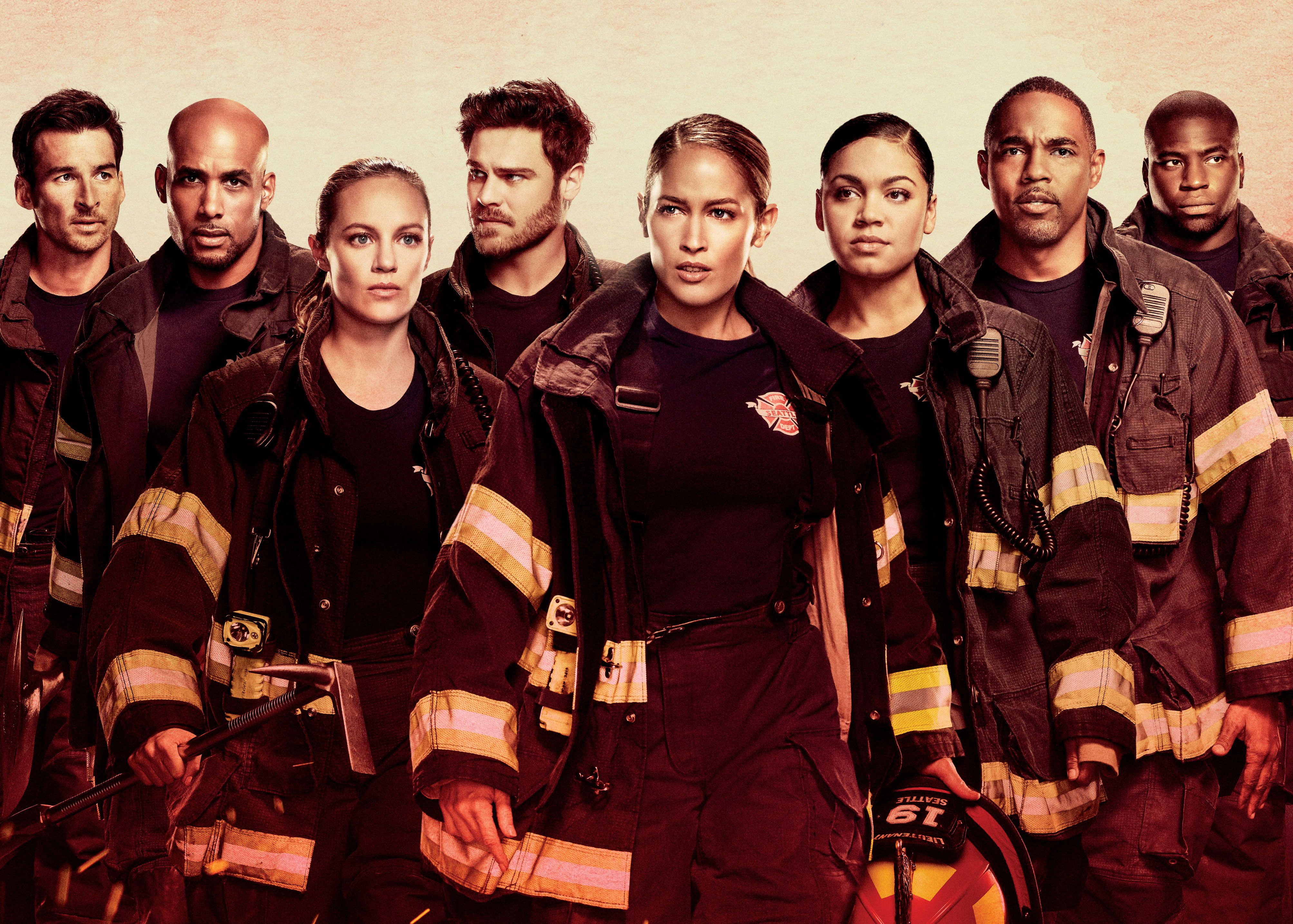
When Station 19 was first introduced as a spin-off of the immensely popular Grey’s Anatomy, fans were immediately hooked by the mix of gripping drama, fiery relationships, and the life-or-death stakes that come with being a firefighter. But after 7 seasons, the unthinkable happened—the show was canceled, leaving a significant void in the world of TV drama. So, why did Station 19 meet its untimely demise? Let’s break down the reasons behind its cancellation and explore the key factors that led to the end of this action-packed series.
The Rise and Fall of Station 19: A Quick Overview
Before diving into the reasons behind its cancellation, let’s first take a look at the journey of Station 19. Premiering in 2018, the show quickly became a fan favorite, thanks to its compelling ensemble cast and ties to Grey’s Anatomy. It followed a group of firefighters in Seattle, balancing their professional duties with their personal lives—something that kept viewers coming back for more.
However, despite its initial success, the show’s ratings began to dip over time. Though the series managed to maintain a loyal fanbase, it wasn’t immune to the shifting dynamics of television viewership and network priorities.
Why Was Station 19 Canceled? The Major Reasons
There are several reasons behind the cancellation of Station 19. While it wasn’t an overnight decision, there were key factors that ultimately led to the series’ conclusion after season 7. Let’s take a closer look.
1. Declining Viewership and Ratings
One of the biggest reasons for the cancellation of Station 19 was its decline in viewership over time. Initially, the show drew in millions of viewers per episode, especially since it aired right after Grey’s Anatomy, which acted as a built-in lead-in. However, as seasons went on, ratings started to drop. While loyal fans still tuned in, new viewers were harder to attract, and the show struggled to maintain its momentum.
2. The Shift in Network Priorities
Another critical factor behind Station 19’s cancellation was ABC’s changing network priorities. Television is an ever-evolving medium, and networks are constantly adjusting their schedules to fit new programming trends and audience demands. As streaming platforms began to dominate the entertainment industry, ABC started to focus more on other genres, including reality shows and limited series. This shift meant less investment in long-running scripted dramas like Station 19.
3. Cost vs. Return: The Financial Realities
Producing a high-octane drama like Station 19 comes with a hefty price tag. From special effects to large ensemble casts, the cost of making each episode is significant. While the show still had a solid fanbase, its decreasing ratings led to a lower return on investment for ABC. Networks are businesses, and when a show becomes too expensive to produce without drawing in enough viewership, difficult decisions need to be made.
4. The Impact of Showrunners and Creative Direction
Behind every great show is a talented creative team, and Station 19 was no exception. However, as seasons progressed, some fans and critics felt the storylines were becoming repetitive or losing their original spark. A lack of fresh, compelling story arcs and new character dynamics may have contributed to the show’s struggle to keep its audience engaged. In the world of TV, consistent creative renewal is key to maintaining long-term success, and this is an area where Station 19 may have faltered.
5. The Stigma of Spin-Offs
Being a spin-off of Grey’s Anatomy, Station 19 was always going to face some challenges when it came to living up to its predecessor’s legacy. While Grey’s Anatomy has become an iconic series with a massive following, spin-offs often struggle to achieve the same level of success. The shadow of Grey’s loomed large over Station 19, and while the two shows did share characters and storylines, Station 19 was never quite able to carve out its own identity in the same way.
Behind the Scenes: Internal Factors That Played a Role
While external factors like declining ratings and network priorities played a big part in the show’s cancellation, there were also some internal dynamics that contributed to the decision. Let’s look at a few of these.
6. Cast Changes and Departures
Over the years, Station 19 saw some major cast changes. Several key characters, including beloved actors, left the show, which caused a shift in the dynamics that fans had grown to love. While new characters were introduced, the constant turnover made it difficult to maintain the same level of connection with the audience.
7. The Show’s Pacing and Tone
In later seasons, Station 19 started to experiment with its pacing and tone. The series initially captivated audiences with a balance of action, emotional depth, and humor, but as it progressed, the mix became uneven. Some viewers felt that the drama became too heavy-handed or melodramatic, while others missed the high-intensity action that had defined earlier seasons. When a show starts to lose its tone or direction, fans can start to lose interest, which likely contributed to the show’s eventual cancellation.
What Does the Cancellation Mean for Fans?
The news of Station 19’s cancellation is undoubtedly a blow for fans who had invested in the characters and the storylines over the past seven seasons. However, this doesn’t necessarily mean the end for the beloved firefighter series.
The Possibility of a Spin-Off or Revival
While Station 19 may no longer be airing on ABC, it’s possible that the world of Seattle firefighters could be revisited in some form. With the rise of streaming platforms and limited series formats, it’s not out of the realm of possibility that we could see a Station 19 revival or spin-off in the future.
Fans Can Always Rewatch the Series
For fans who are devastated by the cancellation, the good news is that Station 19 is still available for rewatching on various streaming platforms. Reliving the drama, the fiery rescues, and the emotional moments will allow fans to continue experiencing the world of Station 19 even after its cancellation.
Conclusion: A Goodbye to Station 19, But Not Forgotten
The cancellation of Station 19 marks the end of an era for many fans who enjoyed its gripping storytelling and unforgettable characters. While declining viewership, changing network priorities, and creative struggles all played a role, Station 19 will remain a fan-favorite for years to come. Whether or not we see a revival or spin-off, the legacy of Station 19 as a high-octane drama about the lives of Seattle firefighters will continue to resonate with viewers.
Though it’s the end of the line for now, who knows? In the world of television, anything is possible.
Frequently Asked Questions
1. Why was Station 19 canceled after season 7?
Station 19 was canceled primarily due to declining viewership, shifting network priorities, and increasing production costs. These factors made it financially unsustainable for ABC to continue with the show.
2. Is there any hope for a Station 19 revival or spin-off?
While the series has been officially canceled, there’s always a chance for a revival or spin-off, especially in the world of streaming platforms. Fans can hold out hope for more content related to the Station 19 universe.
3. Can I still watch Station 19 after it was canceled?
Yes, Station 19 is available for streaming on platforms like Hulu and ABC’s official website. You can always rewatch the series to relive the drama!
4. How did Station 19 compare to Grey’s Anatomy?
While Station 19 had strong ties to Grey’s Anatomy and shared some characters, it had its own distinct identity, focusing on the high-stakes lives of firefighters rather than medical professionals. However, the shadow of Grey’s was always present, which affected Station 19’s ability to create its own legacy.
5. Were there any major cast changes in Station 19?
Yes, throughout the seven seasons, Station 19 saw several key cast departures and new characters being introduced. These changes affected the dynamic of the show and contributed to its evolving narrative.
